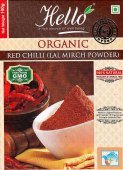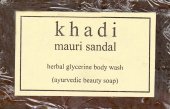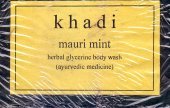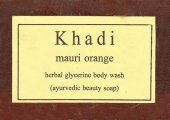Lal: 10 definitions
Introduction:
Lal means something in Hinduism, Sanskrit, Hindi. If you want to know the exact meaning, history, etymology or English translation of this term then check out the descriptions on this page. Add your comment or reference to a book if you want to contribute to this summary article.
Languages of India and abroad
Sanskrit dictionary
Source: DDSA: The practical Sanskrit-English dictionaryLal (लल्).—I. 1 U. (lalati-te) To play, move about, sport, dally, frolic; पनसफलानीव वानरा ललन्ति (panasaphalānīva vānarā lalanti) Mṛcchakaṭika 8.8; गजकलभा इव बन्धुला ललामः (gajakalabhā iva bandhulā lalāmaḥ) 4.28; ललदजगरघोरकोटराणाम् (laladajagaraghorakoṭarāṇām) Mālatīmādhava (Bombay) 5.15; युधि ललितमनायुधेन तेन (yudhi lalitamanāyudhena tena) Avimāraka 6.9. -II. 1 U. or Caus. (lālayati-te, lalita)
1) To cause to sport or play, caress, fondle, coax, dandle; लालने बहवो दोषास्ताडने बहवो गुणाः । तस्मात्पुत्रं च शिष्यं च ताडयेन्न तु लालयेत् (lālane bahavo doṣāstāḍane bahavo guṇāḥ | tasmātputraṃ ca śiṣyaṃ ca tāḍayenna tu lālayet) || Suhhāṣ.; Kumārasambhava 5.15.
2) To desire. -III. 1 U. (lalayati-te)
1) To fondle; परगृहललिताः परान्नपुष्टाः (paragṛhalalitāḥ parānnapuṣṭāḥ) Mṛcchakaṭika 4.28.
2) To loll the tongue.
3) To desire.
Source: Cologne Digital Sanskrit Dictionaries: Shabda-Sagara Sanskrit-English DictionaryLal (लल्).—r. 1st cl. (lalati-te) 1. To sport, to dally. 2. To loll, as the tongue, &c.: see laḍa, of which it is considered as a various reading only. r. 10th cl. (lālayati-te) 1. To desire, to wish for, to seek to obtain. 2. To sport, to wanton. 3. To lay. 4. To fondle. (lalayati-te) 1. To desire. 2. To loll the tongue.
Source: Cologne Digital Sanskrit Dictionaries: Benfey Sanskrit-English DictionaryLal (लल्).—and † laḍ LaḌ, i. 1, [Parasmaipada.] (in epic poetry, [Ātmanepada.], [Rāmāyaṇa] 1, 9, 19). 1. To sport, Mahābhārata 3, 1741. 2. To dally, [Rāmāyaṇa] 1, 9, 19. Ptcple. of the pf. pass. lalita. 1. Dallying, wanton, [Meghadūta, (ed. Gildemeister.)] 65. 2. Beautiful, [Uttara Rāmacarita, 2. ed. Calc., 1862.] 14, 6. 3. Wished. n. 1. Beauty, [Rāmāyaṇa] 1, 9, 16. 2. Love of pleasure, love, [Vikramorvaśī, (ed. Bollensen.)] [distich] 32. 3. Softness and delicacy of motion, [Uttara Rāmacarita, 2. ed. Calc., 1862.] 14, 6. 4. ºtam, adv. Sweetly, [Devīmāhātmya, (ed. Poley.)] 10, 27. Comp. Durlalita, i. e. dus- (cf. [Causal.] A.), I. adj. spoiled, [Vikramorvaśī, (ed. Bollensen.)] [distich] 27; wayward, [Śākuntala, (ed. Böhtlingk.)] 103, 4. n. 1. ill habit, [Harivaṃśa, (ed. Calc.)] 8539 (with ati-, excessive). 2. disfavour, [Prabodhacandrodaya, (ed. Brockhaus.)] 90, 15. Su-, adj. 1. sporting. 2. pleased, very delicate, [Hitopadeśa] 37, 4, M.M. 3. very beautiful, [Ṛtusaṃhāra] 1, 28; [Bhartṛhari, (ed. Bohlen.)] 3, 28. ºtam, adv. delightedly, easily. [Causal.], and i. 10, [Parasmaipada.] A. lalaya, † laḍaya, 1. To exhilarate, [Rāmāyaṇa] 2, 43. 5. 2. To nurse, to foster, to attend, [Rāmāyaṇa] 2, 47, 6; [Pañcatantra] 87, 11. B. lālaya, 1. To cherish, [Pañcatantra] i. [distich] 397. 2. To spoil, Böhtl. Ind. Spr. 2664. i. 10, [Ātmanepada.] † lāḍaya, To desire. lālita, 1. Desired. 2. Cherished tenderly, [Pañcatantra] iii. [distich] 126. 3. Loved, [Rājataraṅgiṇī] 5, 6. 4. Coaxed, [Pañcatantra] 87, 11 (or n. Joy; ºtena, Joyfully ?). 5. Seduced; cf. 2. laḍ.
— With the prep. upa upa, [Causal.] lālaya, 1. To court, [Mālavikāgnimitra, (ed. Tullberg.)] 29, 1. 2. To fondle, [Śākuntala, (ed. Böhtlingk.)] 104, 5.
Source: Cologne Digital Sanskrit Dictionaries: Cappeller Sanskrit-English DictionaryLal (लल्).—lalani (lalate) [participle] lalita (q.v.) sport, dally, play, coruscate. [Causative] lālayati cause to sport etc., caress, fondle, cherish, love. (ā play, sport*). upa & sam [Causative] = [Simple] [Causative]
Source: Cologne Digital Sanskrit Dictionaries: Monier-Williams Sanskrit-English DictionaryLal (लल्):—(cf. √laḍ) [class] 1. [Parasmaipada] ([Dhātupāṭha ix, 77]) lalati (mc. also te), to play, sport, dally, frolic, behave loosely or freely, [Mahābhārata; Kāvya literature] etc.;
—to loll or wag the tongue (See below) :—[Causal] lālayati, te ([Passive voice] lālyate), to cause to sport or dally, caress, fondle, foster, cherish, [ib.];
—to wave, flourish, [Harivaṃśa];
—to favour, [Sāhitya-darpaṇa];
— ([Ātmanepada]) to desire, [Dhātupāṭha] (cf. under √laḍ).
Source: Cologne Digital Sanskrit Dictionaries: Yates Sanskrit-English DictionaryLal (लल्):—lalati 1. a. To sport; to loll. (ka, ṅa) lālayate 10. d. To desire. to seek, to obtain; to sport.
[Sanskrit to German]
Sanskrit, also spelled संस्कृतम् (saṃskṛtam), is an ancient language of India commonly seen as the grandmother of the Indo-European language family (even English!). Closely allied with Prakrit and Pali, Sanskrit is more exhaustive in both grammar and terms and has the most extensive collection of literature in the world, greatly surpassing its sister-languages Greek and Latin.
Hindi dictionary
Source: DDSA: A practical Hindi-English dictionaryLal in Hindi refers in English to:—(a) red, ruddy; angry, infuriated; communist (as —[cina]); (nm) beloved/dear child/boy/son; beloved person; a kind of small bird; ruby; —[amgara/bhabhuka] extremely red, red hot; red hot due to anger, terribly infuriated; —[camdana] red sandalwood; —[pagadi] the police (man); —[pari] wine, liquor; —[pani] wine, liquor; ~[phita] red tape; •[shahi] red-tapism; —[bujhakkada] village wisecare, an ignorant fool who thinks very highly of himself and feels competent to answer any question; •[bujhihai aura na bujhai koya] the ass waggeth his ears; —[mirca] chilly; —[shakkara] unrefined/crude sugar; —[sagara] red sea; —[sena] communist army; —[amkhem dikhana/nikalana] to look angrily, to frown; -[pila hona] to be black in the face, to be purple with passion; to fret and fume, to be red hot with rage..—lal (लाल) is alternatively transliterated as Lāla.
...
Kannada-English dictionary
Source: Alar: Kannada-English corpusLāl (ಲಾಲ್):—
1) [noun] the colour of the human blood or any of its varying shades.
2) [noun] a variety of bird having brown feathers and red breast.
Kannada is a Dravidian language (as opposed to the Indo-European language family) mainly spoken in the southwestern region of India.
See also (Relevant definitions)
Starts with (+594): Lal ambari, Lal amiri, Lal anchu, Lal babusi, Lal bela, Lal berenda, Lal bherenda, Lal bishalyakarani, Lal champa, Lal chandan, Lal chandan lakadi, Lal chita, Lal chitra, Lal dalan champa, Lal ephilzara, Lal erand, Lal geri, Lal golainchi, Lal guma, Lal gunja.
Ends with (+198): Adavalal, Akavarrullal, Alal, Allal, Amparkulal, Anlal, Aradigurulal, Arulal, Arunilal, Atalal, Atrilal, Awoaralal, Ayakkulal, Ayalal, Aykkulal, Bageyalal, Balal, Ballal, Belal, Bellal.
Full-text (+303): Laal-ambaari, Upalalya, Lal-beli, Apalaleti, Lalaka, Laal khaira, Laal kamal, Raktajhavuka, Lalitavyuha, Ullal, Lala, Lad, Lalita, Chiramati lal, Lal gunja, Chirmati lal, Lal-bel, Vavding lal, Chandal lal, Chandan-lal.
Relevant text
Search found 48 books and stories containing Lal, Lāl, Laal; (plurals include: Lals, Lāls, Laals). You can also click to the full overview containing English textual excerpts. Below are direct links for the most relevant articles:
Lord Jhulelal: An Analytical Study (by Thakkar Harish Gopalji)
Part 2 - Lord Jhulelal's teachings to Ruler Mirkshah < [Chapter 4 - Analysis]
Part 5.6 - The Sindh Story < [Chapter 2 - Literature Review]
Part 8 - Historic temples in Pakistan < [Chapter 2 - Literature Review]
The theme of Marital Disintegration in Ruth Prawer < [October – December, 1994]
Lal Bahadur Shastri < [April 1966]
Lal Bahadur Shastri < [April 1966]
Srila Gurudeva (The Supreme Treasure) (by Swami Bhaktivedanta Madhava Maharaja)
At the Guest House < [Chapter 2.5 - Their Intimacy Could Not Have Been Greater]
Kathasaritsagara (the Ocean of Story) (by Somadeva)
The history of human sacrifice < [Notes]
Chapter III < [Book I - Kathāpīṭha]
Chapter XXVIII < [Book VI - Madanamañcukā]
The Mahavastu (great story) (by J. J. Jones)
Chapter XXVIII - The story of Trapuṣa (Trapusa) and Bhallika < [Volume III]
Chapter XXIX - From Uruvilvā to Benares < [Volume III]
Chapter XXX - The rolling of the wheel < [Volume III]
Women in the Atharva-veda Samhita (by Pranab Jyoti Kalita)
28. Goddess Vedamātā < [Chapter 4 - Female Deities and the Glorification of Women in the Atharvaveda]
4. Goddess Ākūti < [Chapter 4 - Female Deities and the Glorification of Women in the Atharvaveda]
3. Woman as a Mother < [Chapter 3 - The Familial and Social Life of Women in the Atharvaveda]
Related products
(+7 more products available)





